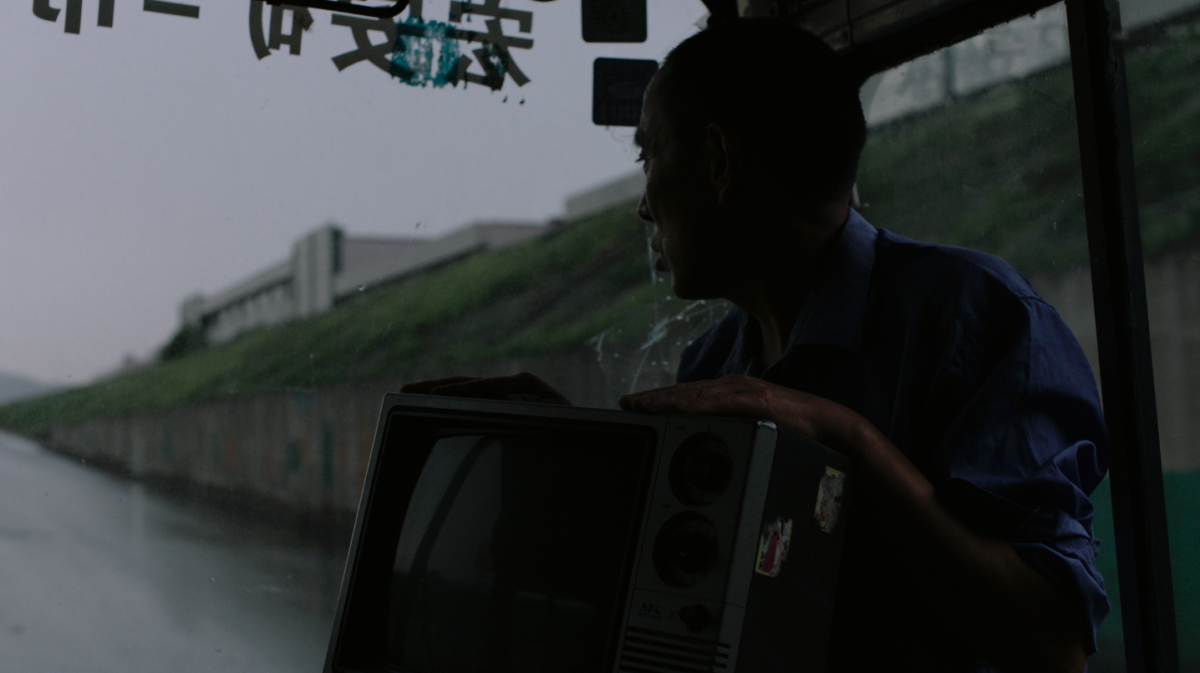Cinema has offered up few theorists of modernity and urbanism as astute and imaginative as Jia Zhangke, whose ideas are embodied in certain, powerful images. There’s globalization as a depressed theme park in The World (2004) and the recurring presence of a flying saucer zooming over a China locked in a cycle of transformation through demolition, in Still Life (2006) and Ash is Purest White (2018).
Out of Jungle is a neat talisman of his ability to use the ‘frozen time’ of architecture and cinema to convey the architectonics of modernization and its effect on those individuals and communities who are forced to navigate shifting landscapes and social norms and expectations.
It is an ouroboros, composed of snapshots offering glimpses of humanity subsisting through an imposing modernity. We see an elderly man clutching a TV, seated on a bus which pushes through a darkened tunnel until it emerges out onto daylight and a flooded road. The new monumental architecture, towering pylons and industrial chimneys, scratching, cluttering, masking, but not fully blotting out, the mountains and the sky. All the while Teresa Barrozo attunes the hubbub of modern life to a largely electronic score with folk inferences. Sweeping synths and a hurried percussion line mimic the course and speed of roadways and powerlines, while the periodic booming of processed throat singing suggests the totemic might of nature and industry.
Midway there’s a pause. We’re introduced to a family of three in crisis. In a quick succession of shots, we learn the father is ill and see them set out into the concrete jungle and an uncertain failure. The father is played by Liang Jingdong, a regular in Jia’s troupe since Xiao Wu (1997). In the present-day section of his decades-spanning Mountains May Depart (2015), his character is a miner stricken with a lung disease, forcing him and his family into a position of precarity.
Jia returns to this ominous situation but instead of developing or resolving it, repeats it. It’s a reprise which, along with the short’s circular nature, describes a world where mountains do in fact depart, not at the whim of gods but of capital, with the masses callously scattered in their wake. Perhaps a brighter future is possible, to be assembled person to person, not pylon to pylon.
